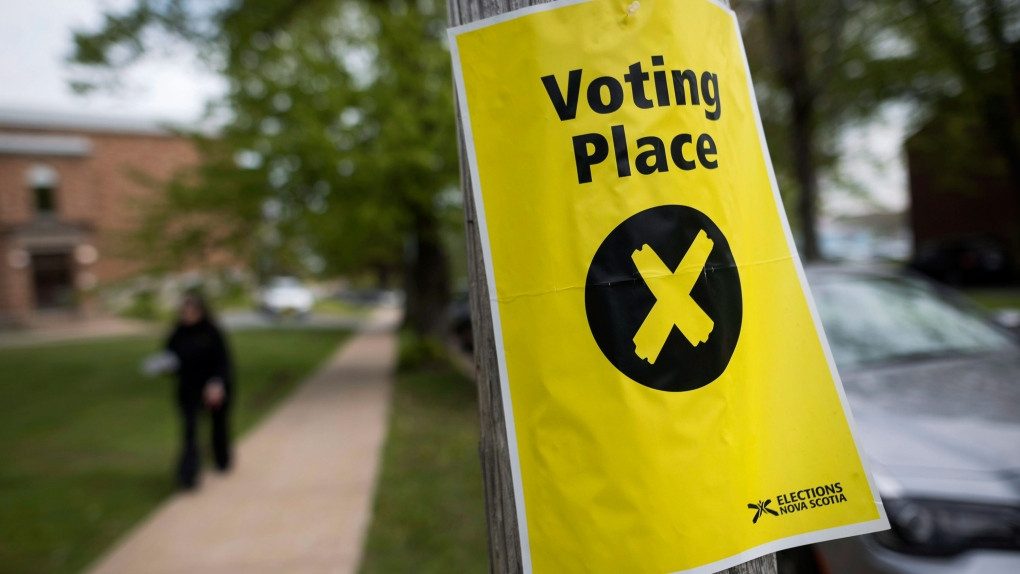Nova Scotia Election 2024: A Night of Surprises
The 2024 Nova Scotia provincial election unfolded with unexpected twists and turns, defying predictions and reshaping the political landscape. While the Progressive Conservatives, led by Tim Houston, secured a majority government, the New Democratic Party (NDP), under the leadership of Claudia Chender, emerged as a significant force, capturing more seats than anticipated and becoming the official Opposition. This election saw a record number of women candidates, and some ridings witnessed historic firsts, showcasing a shift in political representation. The high-profile race in Dartmouth South, featuring three female candidates, captured national attention.
The Dartmouth South Showdown: A Historic Race
For the first time in the riding's history, the candidates vying for the seat in Dartmouth South were all women. This unprecedented race pitted Liberal candidate Barb Henderson, Progressive Conservative candidate Bea MacGregor, and incumbent NDP leader Claudia Chender against each other. Chender, running for her third term, ultimately secured a landslide victory, demonstrating the continued strength of the NDP in this traditionally NDP-leaning riding. The high voter turnout in Dartmouth South reflected the significant interest in this unique contest, which highlighted the growing representation of women in Nova Scotian politics. The riding, encompassing downtown Dartmouth, Penhorn, and Woodside, has a history of supporting the NDP, with only a brief deviation in 2013 when Allan Rowe of the Liberal party won.
Voter Turnout and Demographics
In the 2021 election, Dartmouth South had 13,863 eligible voters, with a turnout of 52 percent, resulting in 7,267 ballots cast. The riding's boundaries were redrawn after the 2013 election, losing territory south of Russell Lake and Highway 111 to Cole Harbour-Eastern Passage. This alteration led to a renaming from Dartmouth South-Portland Valley to Dartmouth South.
The Rise of the NDP: A Strong Showing Across Halifax
The NDP's performance exceeded expectations, particularly in Halifax. The party secured several key victories in traditionally Liberal or Conservative ridings, showcasing a notable surge in support. In Halifax-Armdale, NDP candidate Rod Wilson won, securing the district for the NDP for the first time since 2013. Similarly, the NDP's Suzy Hansen was re-elected in Halifax Needham, maintaining the party's 26-year hold on the riding. The NDP also secured victories in Halifax Chebucto (Krista Gallagher) and Fairview-Clayton Park (Lina Hamid). Claudia Chender's victory in Dartmouth South solidified the NDP's position as a major force in the province.
Key NDP Platforms and Promises
The Nova Scotia NDP campaigned on several key issues, including affordable housing, access to primary health care, and relief from rising costs of living. Chender pledged to cut allowable rent increases to 2.5 percent and ban fixed-term leases. The party also promised to open more family doctor clinics and lower small business tax rates. These promises resonated with voters across the province, contributing to the NDP's success.
The Progressive Conservative Victory: A Second Term for Tim Houston
Despite the NDP's gains, the Progressive Conservatives, under Tim Houston, secured a majority government, signaling a continued mandate for their policies. The PCs focused their campaign on economic growth, job creation, and improving healthcare access. While the NDP made significant inroads, the PC's ability to maintain its base support across the province proved decisive in securing the majority. This win marks a second term for Tim Houston as Premier of Nova Scotia.
Beyond the Major Parties: A Look at Other Contenders
While the NDP and PCs dominated the headlines, other parties played notable roles in certain ridings. The Green Party had a modest showing, demonstrating the province's growing awareness of environmental concerns. Meanwhile, the Liberal Party, under Zach Churchill, experienced significant losses, losing even the leader's seat in Yarmouth to Nick Hilton, a Progressive Conservative candidate. This outcome indicates a shift in the political balance of power in Nova Scotia.
A New Era in Nova Scotian Politics: Reflections on the Results
The 2024 Nova Scotia election serves as a significant benchmark in the province's political history. The NDP's strong showing demonstrates a growing dissatisfaction with the status quo, emphasizing the importance of addressing issues such as affordable housing and healthcare accessibility. The all-women race in Dartmouth South is another milestone, highlighting a trend toward greater gender diversity in politics. This election marks a new era, setting the stage for future political battles and shaping the direction of Nova Scotia for the next four years. The results emphasize the need for all parties to engage with the pressing issues facing the citizens of Nova Scotia.
The election is over, but the work is just beginning. The focus will now shift to fulfilling the promises made and ensuring accountability to the citizens who cast their ballots. The new government and the official opposition will need to demonstrate an unwavering commitment to serving the needs of all Nova Scotians. This will be a key factor in determining whether these elections represent a genuine shift in priorities or simply a temporary change in power.


















